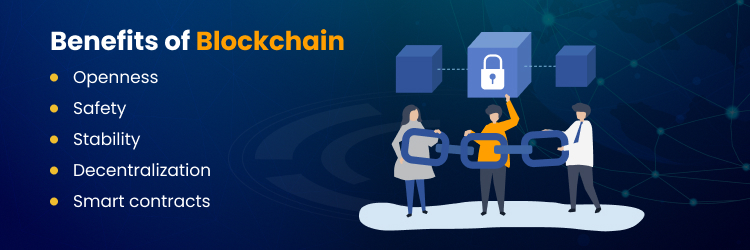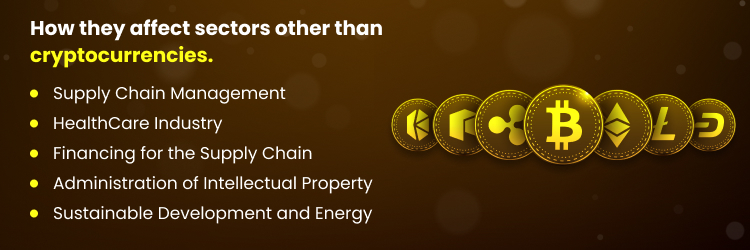In the constantly changing field of blockchain technology, 2024 seems to be a landmark year full of revolutionary developments. Among these, blockchain's application in sustainable finance stands out as an innovative role model.
Blockchain is becoming more widely acknowledged for its ability to transform sustainable financial practices and provide a route towards a more environmentally and socially conscious financial future, even outside of its connection with cryptocurrencies.
How Does Blockchain Work?
A blockchain consists of an ordered sequence of documents, or blocks. Every block has a timestamp, transaction data, and a hexadecimal number that acts as a hashtag for cryptography. Because these blocks are connected securely and chronologically, a chain is created; therefore, the term "blockchain."
The decentralized network of devices, known as nodes, powers the blockchain. There is no single point of failure or control since every node maintains a copy of the whole blockchain. On the blockchain, transactions are virtually unchangeable and safeguarded by cryptographic methods.
When the Bitcoin whitepaper was published in 2008 by an unidentified individual or group known as Satoshi Nakamoto, blockchain technology was first made public. The earliest use of blockchain technology was in the cryptocurrency space, but it has since expanded to include several different industries, such as voting systems, supply chain management, healthcare, and real estate.
Blockchain-based smart contracts are being used in many different industries today. Blockchain technology is even being investigated by certain organizations and governments to support individuals in maintaining their identity security and advancing sustainable development goals.
Benefits of Blockchain

Blockchain is appropriate for a wide range of applications and use cases because of its many features and advantages. Among the prominent ones are:
- Openness: Since the data on the ledger is shared across all nodes and is publicly available, anybody may access and verify it using blockchain technology. This lessens knowledge asymmetry and corruption while also boosting participant trust and responsibility.
- Safety: Blockchain ensures the integrity and validity of data and transactions by using digital signatures and high-grade encryption. Additionally, it depends on consensus techniques like proof-of-work and proof-of-stake to fend off hostile assaults and guarantee the integrity of the blocks.
- Stability: Because the data is maintained sequentially and chronologically, blockchain guarantees that the information on the ledger is permanent and irrevocable. This maintains the data's quality and dependability and eliminates fraud, manipulation, and duplication.
- Decentralization: Because blockchain functions on a peer-to-peer basis, where each node has equal rights and obligations, it does away with the need for middlemen or central authority. This lowers expenses, delays, and hazards while also enhancing user autonomy and involvement and empowering users.
- Smart contracts: Blockchain technology makes it possible to implement programmable, self-enforcing contracts that are set to activate in response to certain events and conditions. In addition to enforcing laws and regulations, these contracts can automate and simplify several procedures and activities, including payments, delivery, and verification.
A few of the current environmental issues that we face, such as resource management, pollution, deforestation, and climate change, can also be helped by blockchain technology.
In addition to innovative ideas and techniques that might use data and technology, these issues call for collaboration and coordinated action from a range of stakeholders, including governments, corporations, people, and civil society.
By promoting accountability, transparency, and decentralized decision-making, as well as the production and exchange of wealth and incentives, blockchain may offer these kinds of answers and strategies.
Examine the many uses of blockchain technology and how they affect sectors other than cryptocurrencies.
1. Supply Chain Management
Supply chains benefit from blockchain's capacity to record every transaction and movement of items on an immutable, decentralized ledger, which increases transparency and traceability.
This guarantees authenticity and transparency, lowers fraud, and expedites procedures like quality control, product provenance, and inventory management.
Real-time product tracking from the point of origin to the final customer is made possible by blockchain technology, which increases stakeholder confidence and responsibility.
2. HealthCare Industry
Blockchain technology is poised to revolutionize the healthcare sector by ensuring safe patient data exchange and interoperability across healthcare providers.
It can enhance care coordination, reduce medical errors, and enhance data privacy and security. Blockchain-based solutions also facilitate secure clinical trials, device authentication, and pharmaceutical supply chain management.

3. Financing for the Supply Chain
Due to its ability to facilitate safe and effective transactions, blockchain technology is upending traditional supply chain financing.
Blockchain-powered smart contracts minimize fraud risk, guarantee on-time billing, and automate payment settlements.
This increases confidence and transparency between manufacturers, suppliers, and financial institutions, opening up supply chain finance to more people and at a lower cost.
4. Administration of Intellectual Property
Blockchain technology offers an unalterable and transparent intellectual property (IP) rights management system. It can help artists prove ownership and authenticity by allowing them to safely register and timestamp their works.
Blockchain-powered IP management systems simplify the licensing and royalties distribution procedure, guaranteeing authors receive just compensation and lowering the possibility of infringement.
5. Governance and Voting
Blockchain technology offers a revolutionary solution to governance by creating secure, transparent, and unchangeable records of votes and decisions. It enhances election integrity, eliminates voter fraud, and boosts public confidence in the democratic process.
Additionally, decentralized governance models make decision-making more inclusive and transparent in communities and organizations.
6. Sustainable Development and Energy
Blockchain technology is revolutionizing energy markets by enabling transparent, decentralized transactions, reducing prices, accelerating renewable energy adoption, and increasing energy efficiency by eliminating middlemen and facilitating direct transactions between energy suppliers and customers, thereby reducing intermediaries.
Exploring Blockchain's Impact on Sustainable Development with Pixel Softwares
Pixel Softwares is driving innovation in sustainable finance through groundbreaking blockchain solutions. Utilizing blockchain's transparency and security, we're revolutionizing financial practices beyond cryptocurrency.
Our expertise in DAO development ensures efficient, decentralized governance models, while smart contracts enhance transparency and streamline operations. From transparent supply chain management to secure healthcare data sharing, we're reshaping industries for a sustainable future. Join us in embracing blockchain's transformative potential for a more transparent, efficient, and trustworthy financial landscape.
In summary:
Beyond cryptocurrencies, blockchain technology is transforming a variety of sectors by opening up new opportunities for efficiency, security, transparency, and trust. Applications for it include voting, governance, energy, sustainability, supply chain management, healthcare, and finance. Organizations and sectors may transform their operations for a more transparent and decentralized future by embracing blockchain technology, which can help them expedite procedures, improve security, and build trust.